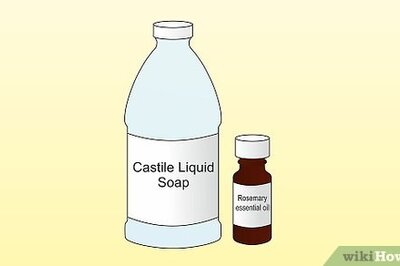
views
I used to see a neatly dressed school teacher leave for work every morning at sharp 8 am. The image I had of her as a woman in full control of her life, shattered when I heard that she was divorcing her husband and had left her home after more than 15 years in a difficult marriage. Why had she not done anything until now? Could she have saved her marriage with the help of a marital therapist? For every couple who seek professional help for their marital problems, there are scores who continue with severe interpersonal problems in their marital life. The kind of issues experienced by current day couples are varied and quite different from the ones in earlier times. With 80 per cent of families being nuclear in urban cities and with the increasing number of working women, couples often experience difficulty in adjusting to the required changes in their lifestyle. The most difficult being the acceptance of egalitarian roles by the spouses. When the spouses start seeing each other as individuals with equal rights to be devoted to their respective jobs, to take rest after a long day’s work, to expect one’s spouse to share the chores at home, to leisure time and time for themselves, the couple feel mutual respect and satisfaction in the rewarding relationship. However, achieving egalitarian viewpoints can be difficult for the husband and wife. One reason for this can be their parents, who serve as their role models, who would have lead highly gender stereotyped roles; husbands as sole breadwinners while child rearing and household chores as duties of the wife who stays at home. Thus, even among working couples, there are husbands who settle on the couch to watch television after work, while the woman has to head straight to the kitchen to get the dinner ready. She may even have to juggle between the children’s homework and the boiling vegetables while the husband concentrates on a tennis match without a tinge of guilt. After all, ‘every woman does these things’. And, some quality time together would never feature as an essential component of their marriage. Such couples may live under the same roof but over the years, they would have grown apart from each other emotionally.Most of the day-to-day issues, that arise when couples strive to strike the right balance between them, can be amicably sorted out if both possess adaptive personality traits such as flexibility, emotion regulation, good communication skills, empathy and optimism. Maladaptive personality traits such as explosive anger, rejection sensitivity, difficulty trusting others, being egoistic, having a closed mind to feedback and perfectionism beyond what is practical, can stand in the way of handling conflicts and problems that arise in every family. This leads to couples going in vicious circles of blaming each other for years, instead of strengthening their marital bond. Among extended families, a whole set of different problems contribute to marital discord. The mother who has still not accepted that her son is married and can have feelings for another woman, the father who has difficulty stepping down from his decision maker role and acknowledging that his adult son would like to decide for his wife and kids, the daughter-in-law who feels threatened by her husbands allegiance to his parents, in-laws who add fuel to the conflicts that young couples naturally have, the inconsistent messages given to children by parents and grandparents; all these are breeding grounds for bickering, misunderstandings, feeling hurt and strained relations.Of greater concern are battered and traumatized young women who return from abroad. More and more girls are getting married to NRIs whose character would be little known to the girl’s parents. In less than a year, the girl’s parents bring back their emotionally and physically tortured daughter. The few months of staying with a psychopathic husband in a distant place, unable to get support from anyone, fearing to reveal the problems to her parents because of not wanting to upset them, takes a heavy toll on the young brides. Many of them come to clinical psychologists in a state of shock and depression. By far the greatest contributor to severe marital problems and family dysfunction is alcoholism. Alcoholic husbands lose interest in everything worthwhile including his job, family, sex etc. All his attention would be focused around getting his next quota of liquor to keep away the withdrawal symptoms. His helplessness makes him angry and irritable. The wife and children become innocent recipients of his wrath. Wives and family members of alcoholics gradually tend to avoid and wish for the alcoholic person’s absence in the house to maintain peace. Couples with marital disharmony cannot be termed mentally healthy. The stress, anxiety and frustration they experience daily erodes their enthusiasm, initiative and the ability to feel the little joys of life. Most couples either put up with these problems all their life, while a few decide to put an end to it through divorce or separation. However, some couples take the bold step of seeking the professional help of marital counsellors. Marital therapy by clinical psychologists involves time-consuming, in-depth analysis of the nature of the problems faced by the couple and the factors that contribute to the marital difficulties. Through joint sessions with both the spouses, the therapist helps them learn how each person can make changes in oneself and thus move towards solutions. Couples, who put in sincere efforts by working with their marital therapist, gradually find themselves moving away from blaming each other to gaining control over bringing back the old spark in their married life.




















Comments
0 comment